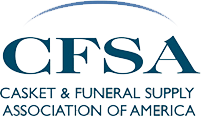An excerpt from Funeral Service Insider (FSI) – www.funeralserviceinsider.com
Funeral professionals love data, and they got it on a webinar titled “How to Use Consumer Insights to Create Positive Funeral Experiences” featuring Gayle Lloyd, a market research manager with Batesville.
The webinar was the first in a series of four that Batesville held to celebrate its Education Week, which reinforced the company’s commitment to learning. This is the second time Batesville has held such a series, having introduced Education Week in November 2014. “We had a tremendous response to our first Education Week event in November,” says Troy Turner, chief marketing officer for Batesville. “Participants asked a lot of great questions, and more importantly, reported a significant increase in their knowledge following the event.” Based on the success of the first event, Batesville decided to offer Education Week on a quarterly basis.
And the company did not disappoint on the first webinar in this quarter’s series, delivering insights from its comprehensive Brand and Segmentation Study conducted in 2012, supported by data from additional research in 2013 and 2014. The segmentation project included a combination of in-depth interviews and online research with more than 1,600 consumers.
Research is an important element in Batesville’s product and service development. On the webinar, Lloyd explained how much work Batesville puts into its studies, from both a quantitative and qualitative angle. “We have set up simulated laboratories where we will actually watch consumers walk through the funeral home environment we’ve set up,” Lloyd says. “How do they move around? What catches their attention? What works and what doesn’t work?” She adds, “At the end of the day, it’s about getting to − and unlocking − the perception of consumers so we can support funeral directors in the most effective ways.”
In seeking to learn who the consumer of today is and how to provide better service, Batesville spoke with consumers who had planned a funeral within the past two years, as well as first timers who had never planned a funeral before.
Batesville found that people have some common concerns when planning a service, including financial pressures, attending to the details, the pressure to get it right, environmental concerns, and the extensive planning needed.
One of the underlying goals of the research was to determine if there are groups who share similar beliefs about funerals and the funeral planning process. And if so, what are the key drivers that influence decisions by each group.
In its research, Batesville identified four distinct personalities:
Traditionalists: These accounted for 35 percent of the group. Funeral professionals probably serve this group the best, Lloyd says. They value traditional burials with visitations and graveside services and like to do things the old fashioned way. Traditionalists view the funeral as a religious ceremony to honor the deceased and often have a large circle of friends. They are more likely to be female.
Nonconformists: These accounted for 25 percent of the group. They want to do things differently, and you can often identify them because they use words such as “celebrate,” “nontraditional,” and “uplifting” when describing what they want. Cremation and memorial services are favored over burial. Most likely baby boomers or members of the Silent Generation, this group is older than other personas.
Distancers: These accounted for 20 percent of the group. They separate themselves from their emotions and want to get the process over with quick and fast. More likely to be male, they may focus on budget and practicality and steer clear of too many details.
Conflicteds: These accounted for 20 percent of the group. They are unsure what to do and may often say statements and follow them with the word “but.” Conflicted consumers respect tradition but struggle with the value equation.
While it’s not always easy to do, it’s important to try to determine which group a person you’re making arrangements with fits into. “Listen for triggers, and try to probe to uncover what is on this person’s mind,” Lloyd says. If you are meeting with four different people, each one may very well have a different personality. “You want to focus on who is the person driving the car,” Lloyd says…
On the webinar, Lloyd also shared where families seek information when dealing with an at-need death or in a preneed situation, as well as important factors that play into decisions, such as location, reputation, compassion, information from family and friends and cost.
Lloyd was quick to point out that price is not among the top considerations for choosing a funeral home. In fact, among consumers who consider just one funeral home, price didn’t even register. And with “shoppers” who consider two or more facilities before making a selection, price was cited only 10 percent of the time, behind location, reputation, prior experience, and the perception of how “caring” the funeral home staff was. “Don’t assume because people say price is key, that it is,” Lloyd says. “We know that price is important – we’re not minimizing that – but there are other things.”

